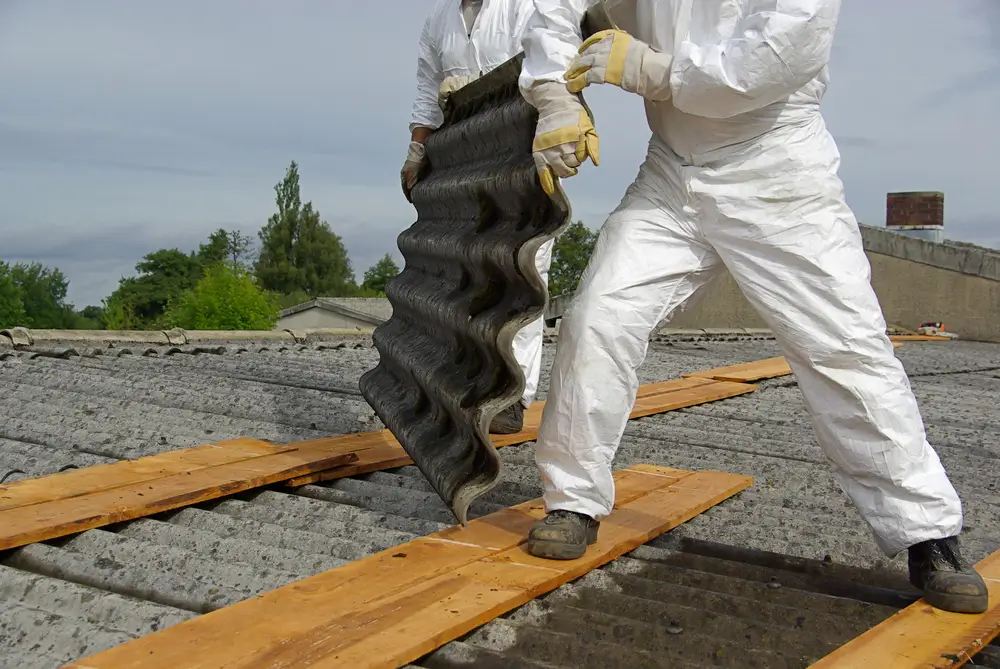Training workers on asbestos safety is not optional—it’s the law. Asbestos, once commonly used in construction and manufacturing, is now recognized as a serious health hazard. Without proper training, workers may unknowingly expose themselves to dangerous fibers, leading to long-term illnesses like lung cancer, mesothelioma, and asbestosis. Employers who fail to provide this training can face serious legal consequences.
1. OSHA’s Training Requirement Under OSHA’s asbestos standards (29 CFR 1910.1001 and 1926.1101), employers must train workers who may come into contact with asbestos. This includes custodians, maintenance staff, demolition crews, and construction workers. The training must cover how to identify asbestos-containing materials, proper work practices, PPE use, and emergency procedures.
OSHA mandates this training before work begins and requires annual refreshers. Skipping this requirement can lead to violations, inspections, and citations.
2. Citations for Non-Compliance One of the most common consequences of failing to train workers is receiving an OSHA citation. These citations fall under “serious” or “willful” violations, depending on the circumstances. A serious violation means there is a substantial risk of death or serious physical harm.
For instance, in 2021, a contractor in New York was fined after employees demolished asbestos materials without any prior training or protective gear. OSHA classified the violation as serious because of the clear health risks.
3. Willful Violations Carry Heavier Fines When OSHA determines that an employer knowingly failed to train workers on asbestos hazards, it may issue a willful violation. These are the most severe and come with the highest penalties.
As of 2024, the maximum penalty for a single willful violation is over $156,000. In one case, a roofing company faced fines exceeding $200,000 for repeatedly exposing untrained workers to asbestos during tear-off work. The company had been cited before, making the repeat nature of the offense more costly.
4. Criminal Charges and Prosecution Failing to train workers on asbestos safety can lead to more than just fines. In extreme cases, criminal charges may follow. If an employer’s negligence results in a worker’s death or serious illness, the Department of Justice may get involved.
In a well-known case from Montana, executives from a mining company faced criminal charges after exposing workers and residents to asbestos-laden dust. The charges included knowing endangerment and conspiracy, highlighting how serious asbestos violations can escalate beyond OSHA penalties.
5. Impact on Workers’ Compensation and Insurance When workers fall ill due to asbestos exposure, employers often face claims through workers’ compensation. However, if it’s found that the employer failed to provide required training, insurance companies may deny coverage or raise premiums.
In addition, some workers may pursue lawsuits outside of the workers’ compensation system if employer negligence is proven. These legal actions can result in large settlements or jury awards, especially if there’s evidence of ignored safety requirements.
6. Real-World Example: Asbestos in School Renovation In 2020, a school district in Pennsylvania was fined after allowing renovation work in a school containing asbestos materials. The contractors and staff involved had not received proper asbestos training, and the work was done without containment or protective gear.
OSHA cited the district and its contractors, and parents filed additional complaints with the state. The case shows how even public institutions can face enforcement actions if training is not provided.
7. Repeat Offenders Face Increased Scrutiny Companies with a history of safety violations are often placed on OSHA’s Severe Violator Enforcement Program (SVEP). This program targets employers with repeated or egregious violations, including asbestos training failures.
Once listed, companies may face more frequent inspections, greater fines, and public listing on OSHA’s website. This can damage a company’s reputation and make it harder to win contracts or hire qualified workers.
8. State-Level Enforcement While OSHA is a federal agency, many states operate their own OSHA-approved programs with additional rules and penalties. States like California, Oregon, and Washington have strict asbestos handling regulations and may impose higher fines than the federal standards.
For example, California’s Division of Occupational Safety and Health (Cal/OSHA) fined a company $180,000 for failing to train employees who were removing old insulation containing asbestos. State agencies often collaborate with federal OSHA when violations are widespread or involve multiple jurisdictions.
9. The Role of Whistleblowers Workers who realize they haven’t been trained on asbestos safety can file complaints with OSHA. These complaints can trigger inspections, especially if the worker can document exposure.
OSHA protects whistleblowers from retaliation. If an employee is fired, demoted, or harassed for reporting a lack of training, the employer may face separate legal actions. In some cases, whistleblowers have received settlements for wrongful termination linked to safety complaints.
10. Preventing Legal Trouble Through Proactive Training The best way to avoid penalties is to provide proper asbestos training from the start. This includes:
- Identifying materials that may contain asbestos
- Teaching workers how to work safely with or around asbestos
- Using correct personal protective equipment
- Creating a written exposure control plan
Training should be easy to understand, role-specific, and repeated regularly. Employers should also keep training records, which can be requested during inspections.
Conclusion Asbestos-related diseases are preventable, and so are the legal consequences of failing to train workers. OSHA and state agencies take asbestos safety seriously, and employers who ignore training requirements risk high fines, lawsuits, and even criminal charges. Providing proper education not only protects workers but also shields businesses from significant legal and financial risks. In the end, training is not just a legal duty—it’s a critical step in workplace safety.



